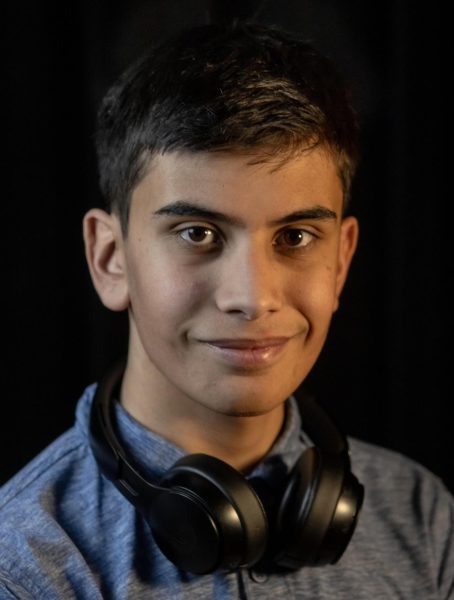High school introduces revised camera policy
Virtual learning has presented countless obstacles to teachers and students alike. One of the most critical issues is cameras. Very few students turn their cameras on during class, which magnifies the significant social barriers that are unavoidable in a virtual environment.
“Usually when my camera’s off, I keep it off because no one else has their cameras on. So I just feel weird putting my camera on,” said Rose Schnorr, freshman.
If every camera in the class is off, teachers can’t base their lessons off the students’ nonverbal feedback.
When I don’t have the ability to see my students’ faces, I am figuratively and metaphorically flying blind.
— John Jacobson, SHS teacher
“When I don’t have the ability to see my students’ faces, I am figuratively and metaphorically flying blind,” said John Jacobson, SHS teacher.
Keeping cameras on ensures that students are paying attention in class.
“I think it really holds people more accountable for being there and being present,” said Schnorr
Teachers and students hope that cameras will be more widely used in the coming months.
“[Turning cameras on] should be more encouraged and more normalized,” Schnorr said. “I think people should understand the benefits of it and it shouldn’t be a thing where you look weird if you have your camera on because everyone has it off.”
Virtual learning has emphasized the importance of nonverbal communication.
“[Humans] are evolved, as are all animal groups, to respond to audible as well as nonverbal cues when we communicate,” Jacobson said. “I always knew that nonverbal communication was an important part of teaching, I didn’t realize how important until this semester.”
The administration is also concerned about the mental health of students during online learning.
“I think from the social emotional piece, getting people to see their peers and seeing those people outside of their social circle, is really important just for people feeling confident and like we’re all in this together,” said Joseph Patek, associate principal.
Although most students are not currently turning their cameras on during class, 64.7% of students who responded to a survey given by the school district said that they would feel comfortable turning on their cameras.
The question becomes: if most students feel comfortable turning on their cameras, and it is clearly beneficial to their learning, why hasn’t the district implemented a school-wide policy making cameras required?
The conversation gets oversimplified. It’s an incredibly complex topic that gets to the root of what the district really believes in, which is equity.
— Joseph Patek, SHS assistant principal
“The conversation gets oversimplified,” Patek said. “It’s an incredibly complex topic that gets to the root of what the district really believes in, which is equity.”
While having cameras on clearly helps students learn, the district has decided to avoid an authoritative schoolwide policy.
“[We want to] have empathy with the situation, understand that there’s varying levels of comfort, and really equip people … to work towards [having cameras on],” said Patek. “Let’s approach it from more of a caring lens, and assume everyone has really good intentions.”
The administration cannot officially require cameras across the whole school: some students have reasons for not being able to do so.
“I think that everyone’s situation is different and if someone feels uncomfortable having their camera on, or self conscious about that, then I don’t think that they should be penalized,” said Schnorr.
The school has grappled with the dilemma of cameras since the beginning of the school year. A staff meeting on October 15 yielded an altered policy regarding the controversial issue. The policy allows teachers to require cameras in their class, but encourages teachers to be considerate of each student’s individual needs.
“It kind of promotes that conversation between [the teacher and the student] to get at why the camera is not on, as opposed to the iron fisted ‘turn it on or we’re going to have problems,’” said Patek.
Although camera policies are a controversial and difficult subject, the district hopes to approach the issue with empathy.
“I don’t think that there’s anything particularly terrible or scandalous about the fact that we’re working through this whole question of cameras,” said Jacobson. “It’s just a part of a larger set of situations that we’re learning how to deal with.”

